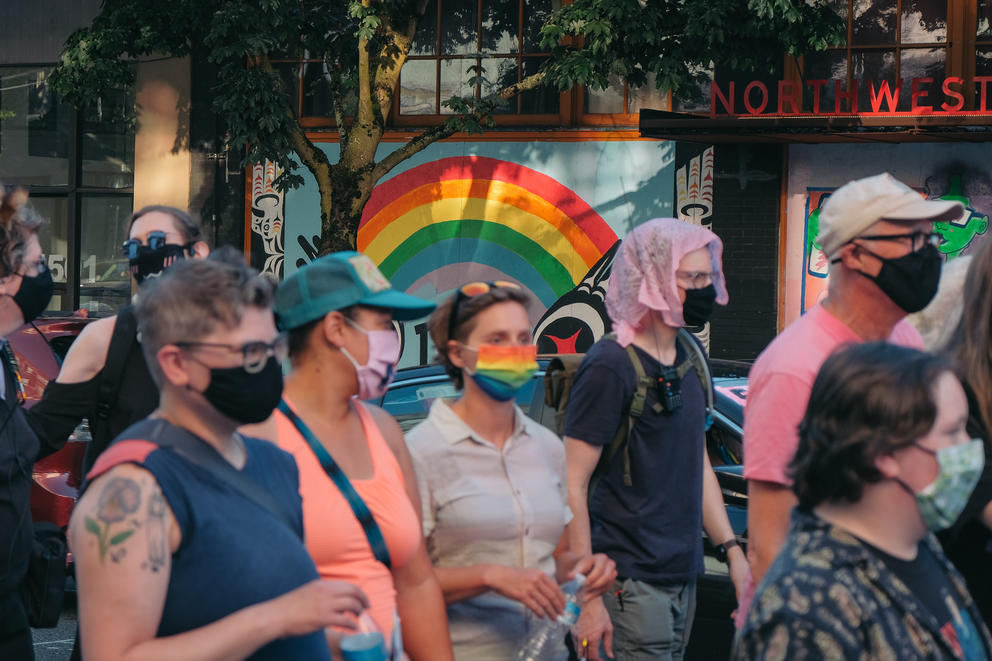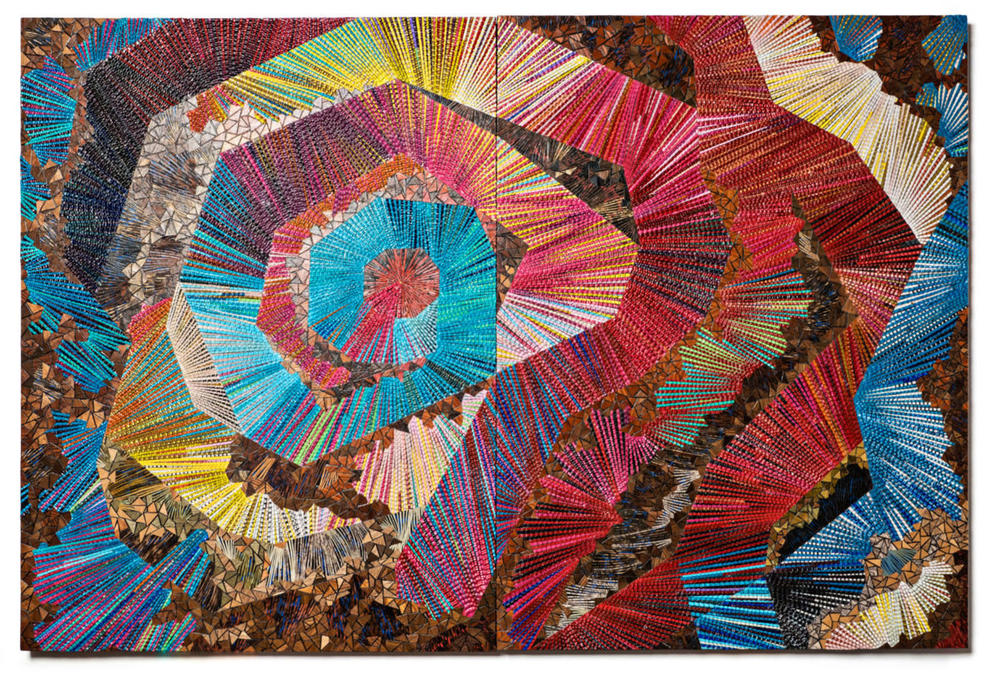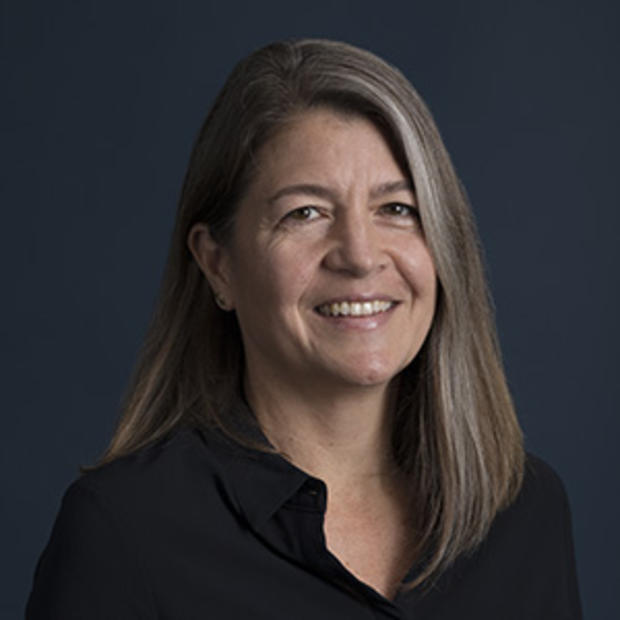Amazon’s head scientist for Alexa, Rohit Prasad, noted that many people had lost loved ones during the pandemic, and said, “While AI can’t eliminate that pain of loss, it can definitely make the memories last.” Meanwhile, on social media, people were generally creeped out.
ArtSEA: Notes on Northwest Culture is Crosscut’s weekly arts & culture newsletter.
Last year, Microsoft earned similar comparisons to a certain Black Mirror episode (“Be Right Back”) with its patent filing for a chatbot based on a deceased person’s online profile. But in Prasad’s view, which he shared at the conference, “We are unquestionably living in the golden era of AI, where our dreams and science fictions are becoming a reality.”
It was an uncanny connection to the new novel I just finished reading: The Immortal King Rao, by Vauhini Vara. This sweeping, prescient and vividly told tale spans about 100 years, including a near-future in which a tech company based in Seattle — with a “Frank Gehry-designed campus” on Bainbridge Island, “the centerpiece of which was the quintet of giant transparent spheres that doubled as tropical greenhouses” — has taken over the role of civic government.
In this dystopia, citizens are “shareholders” and your station in life is determined by your “social capital” online. As is the current custom, the tech company — led by a computer genius named King Rao, who grew up on a coconut farm in South India — purports that its technologies bring humanity closer together. One of his developments lodges the internet inside your brain.
After an uprising, a swath of humans known as the “Exes” opt out, choosing to live Internet-free on islands worldwide, including Bainbridge, where resisters are fomenting a new kind of utopia. The story is narrated by Athena, Rao’s only child, to whom he has given full access to his memories through a trick of technology.
Originally from Saskatchewan, Canada, Vara moved with her immigrant parents to Mercer Island, where she attended middle school and high school in the 1990s. She started her writing career in the early 2000s as a tech reporter for The Wall Street Journal, before attending the Iowa Writers Workshop to focus on fiction. She wrote King Rao over 12 years, on nights and weekends.
It’s a thoroughly engaging and thought-provoking journey that illuminates the caste system and its relationship to capitalism, the emergence of personal computers and the internet, and the encroaching climate catastrophe. Geographically it stretches from South India to Puget Sound’s uninhabited Blake Island — said to be the birthplace of Chief Sealth — where Athena grows up with her father in exile.
“In a region that has come to be best known for its human residents’ transformation of the world — for companies like Amazon, Microsoft and the rest,” Vara writes in a recent essay in The Wall Street Journal, “Blake Island has, remarkably, managed to mostly keep us away.”
Now based in Colorado, Vara returns to Mercer Island next week (June 28, 6:30 p.m. at Island Books) for a reading in her old verdant stomping grounds. In the WSJ essay, she recalls that even as a youngster she was struck by the natural surroundings: “I thought of the place, all lakeshore and fern, as a dreamscape.”
Pride Weekend is back in full fierce
At this point in June, Seattle has been celebrating Pride Month for several weeks. But this weekend brings the biggest event yet: the Seattle Pride Parade, founded in commemoration of the Stonewall Uprising and now in its 48th year. It’s one of Seattle’s summer waypoints — even more anticipated after a two-year pandemic hiatus.
The hoopla steps off on Sunday, June 26, at 11 a.m. (starting at Fourth Avenue and Pike Street downtown) and dovetails nicely with the PrideFest at Seattle Center (June 26, noon-6 p.m.). The latter features several stages and a packed performance lineup, including Seattle dance company Whim W’Him, filmmaker Wes Hurley (of Potato Dreams of America), local singers Stephanie Anne Johnson and Haley Graves, Northwest queer event enhancers BeautyBoiz and a Ball Culture showcase from HBO’s Legendary.
Also at Seattle Center, the day before, is Taking Black Pride’s performance festival Seachella (June 25, 10 a.m.- 8 p.m.), celebrating the Black and Brown queer and trans community, and featuring Seattle musicians Brittany Davis and Parisalexa, Vancouver B.C.’s Kimmortal, and C.J. the Trainer (an expert in “Twerkology”).
It wouldn’t be Seattle Pride without events on Capitol Hill, and there are plenty, including: Queer/Pride Festival (June 24-26), with Seattle musicians Chong the Nomad and SassyBlack, plus Iggy Azalea); WildRose Pride (June 24-26), with locals Brittany Davis, Adra Boo and a live KEXP showcase on Sunday; and PrideFest Capitol Hill (June 25, noon-8 p.m), including drag queen story time with Aleksa Manila and a doggy drag show. (If cats are more your thing, note that SIFF is running its latest edition of CatVideoFest — featuring the best and brightest of internet cat videos — at SIFF Cinema Egyptian, June 24-26.)
And the extensive list of festivities goes on, including the Seattle Men’s Chorus performing Pride Pops with the Seattle Symphony and drag queen Thorgy Thor (June 24-25 at Benaroya Hall); and the Indigiqueer Joy project, which includes a photography exhibit (at Vermillion Art Gallery through June 30) and the Indigiqueer Festival on Pier 62 at Seattle’s waterfront (June 25, 2-7 p.m.), curated by Quileute drag performer Hailey Tayathy.
If that sounds like a lot of celebrating, keep in mind that the LGBTQ community is currently facing new threats — from book banning to the “Patriot Front” group that allegedly planned to disrupt a Pride Parade in Coeur d’Alene, Idaho. LGBTQ rights may have come a long way since Stonewall, but the gains made will stay in place only with a loud — and proud — presence.
Rainbow bright
For those looking to celebrate the colors of Pride minus the crowds, consider these visual art shows that runneth over with a rainbow of hues.
• At Traver Gallery downtown, Seattle mixed-media artist Naoko Morisawa presents Happy Dreamer (through July 2), a vibrant collection of her meticulously cut and painted wood and paper mosaics. Using traditional Japanese wood-inlaying techniques, she creates energetic swirls and abstractions to express joy.
• J. Rinehart Gallery in Pioneer Square will host Maggie Jiang’s I-Ching Through Thick and Thin (through July 20; opening reception June 25, 3-6 p.m.). In her first solo show, the Beijing-born Northwest artist showcases her geometric, electric paintings based on the 64 hexagrams of the I-Ching, an ancient Chinese divination text.
• And this weekend on First Hill, Frye Art Museum opens a great big retrospective of a hugely influential American artist: Romare Beardon: Abstraction (June 25 – Sept. 18). The first art director of the Harlem Cultural Council, Beardon is known and revered for his figurative collage work reflecting African American life. But this show highlights his lesser-known abstract paintings (made from 1952-1964), which reveal his longtime interest in bold shapes and colliding colors.
Get the latest in local arts and culture
This weekly newsletter brings arts news and cultural events straight to your inbox.





